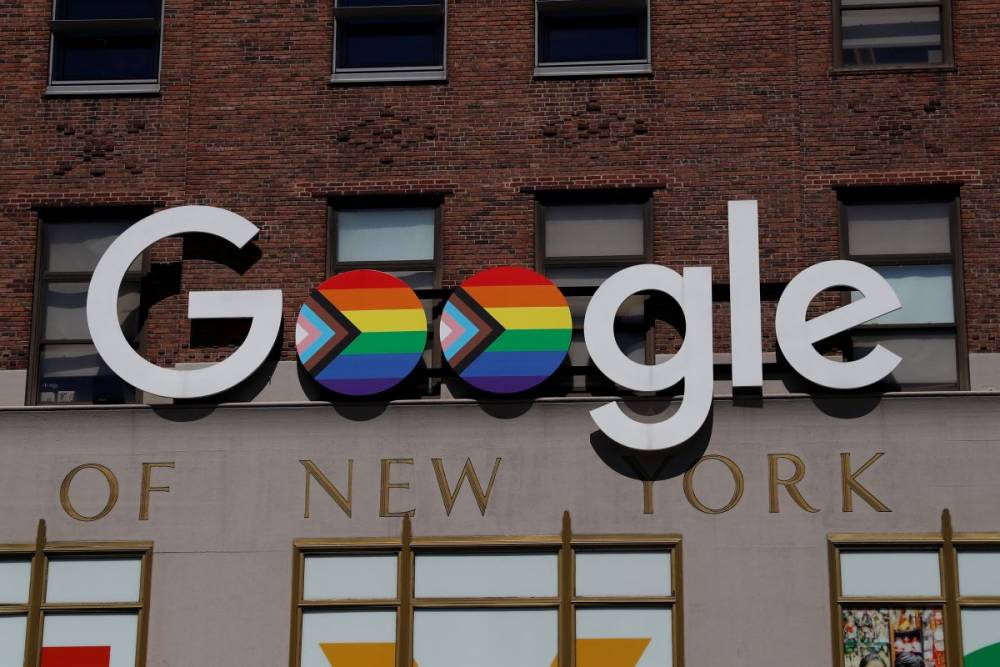
Google tightens UK policy on financial ads after watchdog pressure over scams
Google tightens UK policy on financial ads after watchdog pressure over scams
The UK's expanded role in digital regulation post-Brexit is still being felt today, as evidenced by Google's announcement that it will soon only run ads for financial products and services when the advertiser has been verified by the financial watchdog, the FCA.
According to Google, the Google Ads Financial Products and Services policy will be updated on August 30, and Google will begin enforcing the new policy on September 6 — meaning that purveyors of online financial scams who have been relying on its ad network to harvest unsuspecting clicks still have more than two months to harvest unsuspecting clicks before the party ends (well, in the UK, anyway).
Google's decision to allow only regulated financial entities to run ads for financial products and services comes after the Financial Conduct Authority warned that it would take legal action against Google if it continued to accept unscreened financial ads, as the Guardian previously reported.
According to the newspaper's report, the FCA told a parliamentary committee this month that it is free to consider such action because it is no longer bound by European Union rules on financial advertisements, which do not apply to online platforms.
Until it gained the authority to pursue Google directly, it appears as though the FCA was attempting to combat the scourge of online financial fraud by paying Google large sums of UK taxpayer money to fight scams with anti-scam warnings.
According to the Register, the FCA paid Google more than £600,000 ($830k) in 2020 and 2021 to run 'anti-scam' ads — effectively engaging in a bidding war with scammers to pour enough money into Google's coffers that regulator warnings about financial scams appear higher than the scams themselves.
Google presumably profited handsomely from the full-facepalm situation. However, it appears as though the threat of legal action prompted a policy rethink.
“Financial services advertisers will be required to demonstrate that they are authorised by the UK Financial Conduct Authority or qualify for one of the limited exemptions described on the UK Financial Services verification page,” Ronan Harris, a VP and MD for Google UK & Ireland, wrote in a blog post.
“This new update builds on significant work undertaken in collaboration with the FCA over the last 18 months to assist in resolving this issue,” he added. “Today's announcement demonstrates substantial progress toward providing a safer experience for users, publishers, and advertisers. While we recognize that this policy update will have an impact on a variety of advertisers in the financial services sector, our primary goal is to keep users safe on our platforms — especially in an area that is disproportionately targeted by fraudsters.”
Additionally, according to the company's blog, it has pledged $5 million in advertising credits to support financial fraud public awareness campaigns in the United Kingdom. Thus, it is not $5 million in actual money.
According to the Register, Google did offer to reimburse the FCA's anti-scam advertising spend — but only in the form of advertising credits.
The UK parliament's Treasury Committee was particularly interested in learning whether the tech giant would refund the expenditure in cash. However, according to the Register's report on the committee hearing, the FCA's director of enforcement and market insight, Mark Steward, was unable to confirm what the agency would do.
We've contacted the FCA for comment on Google's policy change and to inquire about the refund situation, and will update this report if and when we receive a response.
The financial watchdog has also expressed concern in recent years about financial scam advertisements appearing on social media platforms.
In 2018, following legal action brought against Facebook by a well-known UK consumer advice personality, Martin Lewis — who sued the social media giant for defamation — the social media giant added a ‘report scam ad' button to the market in July 2019.
However, according to research conducted by the consumer group Which? , earlier this year, claimed that neither Facebook nor Google had completely eradicated financial scam advertisements — even when they were reported.
According to the BBC, Which? According to, Google failed to remove roughly a third (34%) of the scam advertisements reported to it, while Facebook failed to remove well over a fifth (26 percent ).
It's almost as if the incentives for online advertising giants to take action against lucrative online scam ads are insufficient.
More recently, Lewis has advocated for the inclusion of scam advertisements in the scope of the UK's Online Safety Bill.
The expansive piece of digital regulation aims to address a slew of so-called 'online harms' by focusing on user-generated content regulation. Lewis, however, argues that a scammer need only pay an ad platform to promote their fraudulent content to avoid the scope of the proposed rules, telling Good Morning Britain today that the situation is "ludicrous" and "requires change."
As we reported when the bill was introduced, it is undoubtedly a perplexing carve-out. Neither is it the only perplexing aspect of the proposed legislation. However, on the issue of financial fraud, the government may believe the FCA possesses the necessary authority to address the issue.
Courses and Certification
Business Analytics Course and Certificate
Business Intelligence Course and Certificate
Case Management Information System Course and Certificate
Fintech - Financial Technology Course and Certificate

